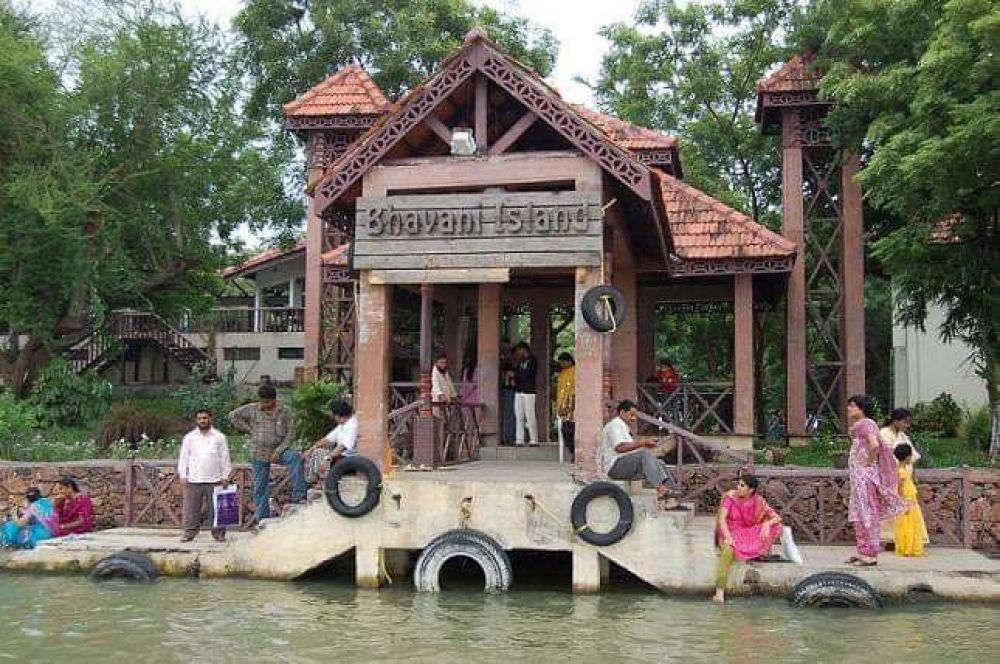

Bhavani Island is one of the largest river islands in India, situated in the Krishna River close to the city of Vijayawada in Andhra Pradesh. The island spans approximately 133 acres and is a popular destination for both locals and tourists seeking a tranquil escape from city life. The island, named after the Goddess Bhavani, has a rich cultural and environmental significance, blending natural beauty with recreational activities.
The history of tourism in Bhavani Island has seen a gradual development over the years. Initially known more for its natural beauty and abundance of flora and fauna, the island has transformed into a well-equipped tourist spot. Its transformation began when the Andhra Pradesh Tourism Development Corporation (APTDC) took the initiative to develop the island as a prime tourist location.
In the early 2000s, the Government of Andhra Pradesh saw the potential in Bhavani Island and started developing it with basic amenities to attract tourists. Investments were made to build cottages and to improve boat services from Vijayawada to the island. The introduction of water sports and other recreational activities began attracting more visitors, contributing to the sustainability and growth of tourism on the island.
Bhavani Island is now a thriving tourist destination with a variety of attractions and facilities, including:
In meeting the interests of a broad range of tourists, Bhavani Island also caters to cultural enthusiasts with its serene environment, picnic spots, and beautiful gardens. Families often visit the island for day trips to relax and enjoy the peaceful ambiance away from the bustling city.
In recent years, there has been an emphasis on sustainable tourism practices in Bhavani Island, aligning with global trends. Ecotourism initiatives are on the rise, with the development of the island focused on conservation and low-impact travel. This includes activities that promote environmental awareness and the preservation of the island's unique ecosystem.
The COVID-19 pandemic brought significant changes to tourism everywhere, and Bhavani Island was no exception. There was a shift towards health and safety protocols to ensure the wellbeing of both tourists and residents. Now, as tourism resumes, there is a noticeable preference for outdoor and spacious destinations where people can maintain social distance while enjoying their leisure time, making Bhavani Island an optimal choice for many.
Technological integration into the tourist experience is also a growing trend. Facilities for digital bookings and virtual tours have become more commonplace, allowing potential visitors to plan their trip to Bhavani Island with greater ease and flexibility.
In conclusion, Bhavani Island remains a jewel in the crown of Andhra Pradesh's tourism. Its development has been crafted carefully to maintain an equilibrium between growth and sustainability, ensuring that visitors can enjoy the beauty of the island for years to come.